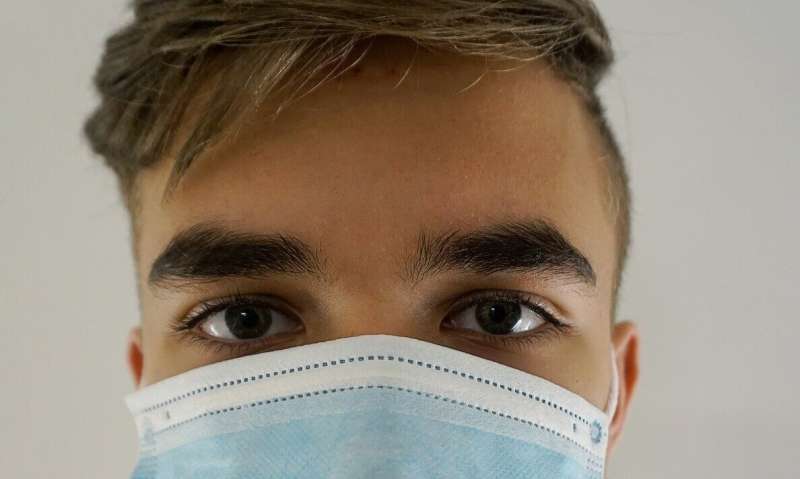Loneliness hits young people harder during lockdown

Fear of losing your job, worrying about you or a loved one getting sick, and online meetups with family and friends you have not seen for months. The COVID-19 lockdown has completely changed everyday life for most people around the world. Physical distancing is the new normal and an extremely important tool in the fight against the pandemic.
However, the effects of the lockdown on mental health are alarming—especially for young people under 30 and people with preexisting mental health issues. This is the conclusion of a new study from the University of Copenhagen, University College London, Sorbonne University, INSERM and the University of Groningen. The study builds on data from 200,000 citizens across Europe.
As part of the collaborative network COVID-Minds, researchers have collected and analyzed mental health data from four different countries (Denmark, France, the Netherlands and the UK) during the first lockdown in the spring and early summer of 2020.
“We have studied different mental health factors such as loneliness, anxiety and COVID-19 related worries. The highest levels of loneliness were observed amongst young people and people with preexisting mental health illness,” says Assistant Professor Tibor V. Varga from Department of Public Health, Faculty of Health and Medical Sciences, University of Copenhagen.
“Psychological stress is a prominent risk factor for future long-term and severe mental illness. Therefore, it is very important to know how lockdowns affect people, so we have a better chance of preventing long-term consequences.”
The researchers suggest that the subgroups identified by the study as particularly prone to experiencing loneliness and anxiety should be closely followed to prevent future challenges.
Mental health should be a concern parallel to containing the virus
The study consists of mental health data from 200,000 citizens from the four European countries during the first lockdown (March 2020 to June 2020). In all four countries, the highest levels of loneliness and anxiety were observed in March and early April, in the very beginning of the lockdown. These outcomes slowly subsided over the next few months as the countries gradually reopened.
Even though the four countries have had different approaches to handling the pandemic, it seems that the mental health reactions are quite similar and very important to take notice of to avoid long-term consequences.
“Mental health has emerged as a quite important parallel concern of this pandemic. While we of course need to contain the spread of the virus and deal with the obvious emergencies at hand, we also need to pay attention to the potential damaging psychiatric aftermath,” says Professor Naja Hulvej Rod from Department of Public Health, Faculty of Health and Medical Sciences, University of Copenhagen.
“People under 30 and people with a history of mental illness could benefit from tailored public-health interventions to prevent or counteract the negative effects of the pandemic.”
Source: Read Full Article



